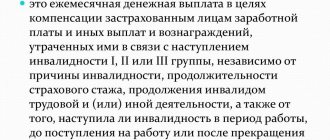When dealing with the issue of structuring the workforce, management most often wants to ask citizens of retirement age to vacate their jobs. Until 1992, reaching retirement age could be taken as a reason, but today it is possible to dismiss a pensioner only for significant reasons. The law is structured in such a way that you cannot ask a person to vacate a workplace just because he has reached a certain age.
When a pensioner is laid off, is benefits paid?
Regulation by law
Previously, in legal terms, rules were adopted that allowed the dismissal of a citizen upon reaching retirement age. However, since 1992, entry into venerable years cannot be used as a reason for dismissal of a citizen due to reduction (although this does not apply to some professional categories). A certain part of the bosses, when dismissing a number of employees, adheres to the fact that citizens of retirement age are relatively protected in legal terms when compared with other people (since they have a slightly different type of income). However, this contradicts legislative norms and can be understood as a discrepancy with the principle of equal rights and opportunities for employees (part one of the second article of the Labor Code) and an infringement of certain categories of citizens (third article of the Labor Code).
Dismissing a citizen of retirement age due to staff reduction (as well as other groups of employees) is permissible only when it is not possible to allow him to continue to perform his job duties. In other words, the company cannot provide a person with a suitable position that matches his professional skills, salary level, and health status.
Note ! _ Another option is the pensioner’s independent refusal to continue working. Before dismissing a citizen of retirement age due to reduction, he must be informed of all possible outcomes.
Article 3 of the Labor Code of the Russian Federation
Based on the first part of Article 179 of the Labor Code of the Russian Federation, pensioners may have some privileges during layoffs, since they usually have greater qualifications compared to other employees.
The protection of employees of retirement age of the social plan is specified in the Labor Code of the Russian Federation. If an employer is going to ask a pensioner to vacate his job, he must study Article 81 “Termination of an employment contract at the initiative of the employer,” which discusses all permissible conditions:
- destruction of the organization;
- reduction in the number of employees due to economic problems;
- low qualification of the employee;
- new management of the company;
- presence of disciplinary sanctions;
- absenteeism;
- showing up at work while drunk;
- committing legal violations at work;
- disclosure of corporate data considered secret.
As you can see, retirement age is not included in the list of reasons, so using this reason to dismiss an employee is unacceptable and is a violation of the law.
Excerpt from Article 81 of the Labor Code of the Russian Federation
Note ! _ When the number of employees is reduced for objective reasons, then general rules apply to retirees, on the basis of which the reorganization is carried out.
Most of the important information is found in Chapter 27 of the Labor Code of our country. The title is as follows: “Guarantees and compensation for employees who are faced with termination of the contract.” It contains several small articles - 178, 179, 180, 181. Having studied the presented text, it is impossible to note any striking differences between the dismissal of a pensioner and other categories of citizens. Thus, the rights of citizens of retirement age are similar to the rights of employees of other ages.
Article 178 talks about severance pay paid after leaving the workplace. Based on the Labor Code, it amounts to one salary and is issued within a couple of months. This period is counted from the moment you leave work. Note that if an employee contacted the Employment Center less than two weeks after leaving his job and they could not help him find a new job, then he may receive severance pay for a month more.
Article 178 of the Labor Code of the Russian Federation
Touching upon practice, we can say that court verdicts vary. The reason is that the Labor Code of the specified chapter does not write whether it is necessary to equate an unemployed person after dismissal due to reduction to a person who is unemployed but receiving pension payments.
Note ! _ Logically, we can conclude that these categories of citizens have nothing in common. However, there are situations when applicants sought to provide them with severance pay from their superiors for three months precisely on the basis of omissions in the Code. True, such cases are rare. This problem is still very acute, causing a lot of controversy.
Common mistakes
Error: The employer did not pay a pensioner who was laid off due to staff reduction, severance pay on the grounds that it was time for the employee to retire and he would not look for a new job.
Comment: Severance pay is paid to all employees dismissed due to staff reduction, including retirees, regardless of whether they are looking for a new job or not.
Error: A pensioner who does not want to get a job after being laid off due to staff reduction applies for severance pay for the second month after dismissal.
Comment: Average monthly earnings are maintained in the first 2 months after dismissal only if the dismissed employee begins to look for a new job and registers with the Employment Center.
Rights of an employed pensioner
A working citizen of retirement age, based on labor laws, is no different from an ordinary employee, who is subject to absolutely all labor rules.
The rights of an employed pensioner are equal to the rights of other employees. Please note that working pensioners are entitled to some privileges:
- The Labor Code does not allow discrimination against an employee based on his age. Thus, a pensioner cannot be fired or not hired because of his status.
- Often, citizens of retirement age have more experience and qualifications. If layoffs are planned due to staff reduction, it is natural that more qualified workers have an advantage over others.
- Management must provide a working citizen of retirement age with an extraordinary leave of two weeks. The salary does not remain with him.
- If a pensioner wants to leave his job of his own free will, he is not required to work for the mandatory two weeks.
Working pensioners have some privileges
Who is the first to be laid off when staffing is reduced?
The reduction of employees must be carried out in compliance with the standards established by the legislation of the Russian Federation. To do this, the employer should adhere to the following algorithm:
- Based on the order to reduce staff, a new staffing table is drawn up (you can find out what the management of the enterprise needs to know about the procedure for reducing a position in the staffing table here).
- A special commission is being formed to identify employees who have preferential rights. Based on the results of her work, a protocol is drawn up, which contains a list of employees who have more rights to remain at work.
- Based on the protocol of the commission, the manager makes a decision and draws up a list of employees who are subject to dismissal.
- Employees who are to be laid off are given 2 months' notice.
When making a decision, the manager pays attention to several factors:
- Skill level. Highly qualified employees have an advantage over other employees. Such specialists are considered to be those who have a higher specialized education and periodically attend advanced training courses or other skills. The manager can also take into account the theoretical knowledge or practical skills of an individual employee. The speed and quality of completing assigned tasks, the absence of disciplinary sanctions, and the amount of work that the employee can do compared to other colleagues are compared.
- Age. Quite often, older workers are candidates for layoffs. Despite the fact that legislation determines the main factor for keeping an employee at work is his level of qualifications, managers try to fire first of all working pensioners or citizens of pre-retirement age. However, such an employee may have a higher level of qualifications. If an employer fires an employee of pre-retirement age without reason, he may be subject to criminal liability in the form of a fine or compulsory labor (Article 144.1 of the Criminal Code of the Russian Federation). Pre-retirees are people who have less than 5 years left until retirement.
- Family circumstances. If it is not possible to choose between employees with the same qualifications and work performance, the personal circumstances of the employee may be taken into account.
If a position is reduced or all staff positions in one position are abolished, the preemptive right does not apply.
The following categories of workers who do not have benefits usually fall under layoff:
- informal workers;
- recently hired employees with little experience in the company;
- workers with low labor productivity;
- not highly qualified;
- single and childless citizens;
- having disciplinary sanctions;
- working pensioners.
Pensioners working at the enterprise
Quite often, employers believe that it is easier to lay off working pensioners, since they already have a stable additional income - a pension. However, the employer does not have the right to lay off a pensioner only due to his age, since this is regarded by law as discrimination.
If the position of an older employee is subject to reduction, then dismissal is permissible, because he is the same employee as his colleagues. Qualifications and labor productivity, family and social status are taken into account.
Rights and benefits of pensioners:
- retirement age is not a reason for layoffs;
- high qualifications and extensive experience can be an advantage when considering candidates by the commission;
- in case of layoff, the pensioner has the right to receive an offer with another vacancy, severance pay, like other employees (we talked about the procedure for offering vacancies to an employee before layoff here, and from this article you will learn what payments and compensations are paid upon dismissal due to staff reduction) .
Newly hired employees
This category of workers is first in line for layoffs, since they generate the least income for the company. In this case, the qualifications of the employee are taken into account. If a newly hired employee is a highly qualified specialist, then most likely he will be retained in the company. Employees are being laid off:
- without work experience or education;
- conflict;
- uninitiative;
- neglecting official duties.
The procedure for dismissing a pensioner at his request
If a citizen of retirement age decides to resign on his own, then the process follows the general rules on the basis of a corresponding application. The employee does not have to state the reasons for such a decision, as for any application of his own free will. The words “due to retirement” are incorrect and contrary to the law, because reaching retirement age and dismissal cannot be interconnected.
Note ! _ In the application, you will still have to write that the resigning employee is a pensioner, exempt from the need to work for the mandatory two weeks based on the eightieth article of the Labor Code.
Example of a resignation letter
Sometimes the reason for leaving work may be written down in the work book in the following form (this is not necessary): “Dismissed at his own request due to retirement age/retirement.”
The procedure for laying off a working citizen of retirement age:
- When a decision has been made to fire a certain number of employees, management must issue an order to create a reduction commission.
- Having received the corresponding conclusion from the commission, the director makes an order to destroy the rates, indicating the reasons for this decision, and to dismiss the employees working at this place - by name.
- If you plan to reduce the number of employees, you must send a written notice to the employment service and the organization’s trade union three months in advance.
- The notice period for employees is two months, and they must also be presented with job options.
- When citizens of retirement age are included in the list of dismissed workers, they are entitled to certain compensation.
Before dismissing a pensioner, the employer is obliged to provide him with alternative positions at the same enterprise
Before dismissing a retiree, the boss should familiarize him with the options for maintaining employment in the company. The new workplace must meet the requirements of the pensioner: match his education, his working skills, and the salary must be at the level of the previous one. A person may well not accept this offer and look for a new job without waiting until two months have passed.
Note ! _ The volume of payments remains at the same level.
The procedure for dismissing a pensioner
An employee of retirement age who continues to work in the company is an ordinary personnel unit that does not have additional rights. As a result of this state of affairs, the dismissal of pensioners due to reduction is carried out on the general conditions established in sections of Russian legislation.
Dismissal procedure
Today, the Labor Code of the Russian Federation clearly describes a number of procedures necessary for the administration of an enterprise faced with the task of dismissing pensioners.
- The management of the organization, represented by the directorate and heads of departments, holds a meeting during which the need to make changes to the company’s staffing table is established.
- Based on the decisions made during the meetings, the enterprise administration issues an order. Within the framework of this document, the company's management establishes the need for reductions in specific employees.
- According to the law, all employees subject to layoffs must receive appropriate notice at least 2 months before the start of the dismissal process.
- If there are corresponding vacancies within the organization, the employee who is being laid off is invited to fill them.
- The administration must notify both the employee who is being laid off and his trade union organization, as well as municipal authorities responsible for employment.
- Two months after delivery of the notice of layoff, the administration issues a dismissal order.
- An employee who has been laid off receives documents, as well as the payment due to him. All of these processes are documented by the HR departments and accounting departments of the organization.
At this stage the procedure ends. To the question of whether it is possible to lay off pensioners due to staff reductions, Russian legislation gives a clear and unambiguous positive answer.
Working off
According to the adopted regulations, the administration of any enterprise is obliged to notify an employee of his dismissal at least 2 months before such events. For 60 days, the working citizen remains at his workplace, fulfilling a set of functional obligations. At this stage, working pensioners have additional rights. Citizens of retirement age can be dismissed early after submitting an application to the personnel department of the organization.
Payment terms
Time periods set for payments due to pensioners laid off due to staff reduction:
- severance pay is provided on the date of dismissal;
- compensation for finding a new job is paid within two months (every month);
- Payments for the third month of job search can be provided based on official paper issued at the employment center.
If a pensioner has not found a job while registered with the Central Employment Service, he will be paid benefits for the third month
Dismissal procedure
Since a pensioner is considered a standard employee, the process of retrenchment is carried out in a standard manner. Company management must take into account the important requirements of the procedure in order to avoid mistakes that allow dismissed employees to be reinstated to their place of work through a judicial procedure.
Therefore, the following steps are performed:
- a meeting of the company’s management is held, where a decision is made on the need to reduce the number of employees in the organization;
- an official order is issued, which lists the selected specialists for dismissal, indicating not only their full names, but also their positions, as well as the date on which the management order must be executed;
- each employee is notified in writing of the decision made 2 months before the layoff;
- if there are free vacancies in the organization that correspond to the qualifications and skills of the pensioner, then he is offered the opportunity to change his position;
- notification of layoffs is sent to the trade union organization and employment center;
- if the pensioner does not agree to move to another position, then he signs an act of refusal;
- after 2 months, an order is issued on the basis of which all notified employees are dismissed, and the wording provides the main reason represented by the reduction.
A laid-off pensioner receives a work book, and is also paid severance pay and salary for the period worked. The dismissal procedure is recorded in the personnel log and statement.
Severance pay for the third month after the pensioner was laid off
A citizen of retirement age dismissed on the basis of reduction has the right to receive compensation in the amount of average monthly earnings for the third month after dismissal if a list of such conditions is met (part two of Article 178 of the Labor Code, letter of the Ministry of Finance of Russia dated March 15, 2006 No. 03-03-04 /1/234):
- this employee must register with the employment service within two weeks from the date of dismissal;
- this employee was unable to get a new job three months after dismissal;
- there is a decision from the employment service to maintain average earnings for the third month.
Note ! _ Payments to a person of retirement age do not eliminate the impact of the rules prescribed in the Labor Code concerning this category of citizens in terms of retaining their average monthly earnings, including in the third month after leaving the workplace, if the case fits the criteria prescribed above (definition Krasnodar Regional Court dated September 27, 2012 in case number 33-19551/2012).
Excerpt from Article 178 of the Labor Code of the Russian Federation
There is an assumption that providing a person with old-age pension payments is grounds for refusing to pay him compensation for the third month after dismissal. However, the courts call this opinion erroneous, because if a person is not recognized as unemployed (and a retired citizen cannot be recognized as such, because he has money to live on), this does not prevent the employment center from satisfying his application for a suitable job (based on the decision of the Central District Sochi court dated January 25, 16 in case number 2a-856/16).
To formalize the decision to retain the average monthly salary for a citizen of retirement age for the third month, the employment service must assess the existence of special circumstances that prevent him from finding a job.
Note ! _ If suitable jobs existed and were provided to the pensioner, and he refused them without a good reason, this will be the basis for the court to annul the decision of the employment service to provide and maintain benefits.
Example:
Let us take as a basis for calculations the amount of the average employee’s earnings of 3,641.3 rubles. We point out that within two months after dismissal, the citizen was unable to find a new job; this month there were 22 working days.
The allowance for the temporary period of employment is: 3,641.3 * 22 = 80,108.6 rubles.
There are cases when a citizen manages to find a job during the second month from the date of layoff. Then he can also be paid benefits, but not for a full month, but only for those working days while he did not yet have a new position.
If a citizen finds a job within 2 months, he will be paid benefits for those days until he was employed
Note ! Neither severance pay nor benefits for a temporary period of employment are subject to taxes on personal income in a part not exceeding three times (for residents of the Far North and similar regions - six times) the average monthly earnings (part three of Article 217 of the Tax Code). That is, when the boss makes additional payments on his own, they are taxed at 13%.
What payments are due to a pensioner upon dismissal?
After dismissal of his own free will or upon retirement, the employee is entitled to compensation payment for unused regular vacation.
If a pensioner is fired due to staff reduction or liquidation of an enterprise, he is entitled to the following payments:
- Within three days, all remaining wages are paid for the days worked before the layoff.
- Compensation for unused vacation.
- Severance pay in the amount of one month's salary.
- If, after being laid off, a citizen registers with the Employment Center, then the former employer pays him the average salary within 2 months.
Benefit for the following months after the retiree’s dismissal
What kind of payments are provided to laid-off pensioners if they worked in the Far North and similar areas? The rules here are similar to those that apply in other places:
- salary for the time period worked;
- compensation for vacation balances;
- severance pay.
Note that the time it takes to maintain the average salary per month (for the duration of employment) after terminating an employment contract is slightly different.
Article 318 of the Labor Code of the Russian Federation
As for people working in the Far North or similar areas, they are entitled to an average salary for a period of up to three months from the end of the employment contract, taking into account severance pay (Article 318 of the Labor Code).
In some situations, the salary may be left for this category of citizens for another three months - if this was the decision of the employment service or a number of the listed criteria are met:
- the citizen visited the employment service within a month after leaving work;
- this citizen was not employed by the employment service.
These rules of the Labor Code of Russia also affect citizens of retirement age who continue to fulfill their labor duties (letter of Rostrud dated February 11, 10, number No. 594-TZ).
Note! Compliance with the right to retain average monthly earnings for the next three months from the date of dismissal (up to six months) depends on the specific situation. Special cases must be established by the employment service. Even if the law does not provide a list of such “special situations”, this cannot be the reason for the decision on the part of the employment service to leave employees without average monthly earnings, provided only that the employees and the employment service itself follow the rules for providing public services for assistance in choosing a suitable place work (decision of the Kuril District Court of the Sakhalin Region dated February 27, 2018 in case number 2-19/2018).
Sometimes severance pay is paid for a longer period
Payment for performing labor duties
Upon layoff of an employee, management must repay the debt to a citizen of retirement age for payment for work duties. The total amount includes salary, bonus, raises, bonuses and similar incentives. If a pensioner was fired in the middle of the reporting month, he is given money for the period that he actually worked. If an employee’s earnings are calculated based on output, then the monetary amount is calculated based on actual indicators (for example, the number of parts created before the reduction).
When providing a salary to a dismissed pensioner, management must credit and pay personal income tax and insurance contributions according to the rules established by law.
Note ! _ Let's look at an example. On November 14, 17, a citizen of retirement age was dismissed from his position as a storekeeper at Start LLC due to job reduction. The salary of this citizen is 18 thousand 712 rubles. Every month he receives a salary increase in the amount of 1 thousand 60 rubles.
On the date of dismissal, the citizen was accrued wages for the time actually worked - from November 1 to November 14, 2017. Let's calculate the amount:
(18 thousand 712 rubles + 1 thousand 60 rubles) / 22 working days * 10 working days = 8 thousand 987 rubles, 27 kopecks.
When accounting for withheld personal income tax, a citizen is provided with payments based on the following calculations:
8 thousand 987 rubles, 27 kopecks – 8 thousand 987 rubles, 27 kopecks * 13% = 7 thousand 818 rubles 93 kopecks.
When a pensioner retires, he must be paid in full.
Vacation compensation
If a pensioner is fired, but has several days of vacation left, the boss must pay compensation for each day not used for rest.
A similar payment is provided both for unused annual leave and for days of additional leave provided to the pensioner, based on the rules specified by law.
The calculation of cash payments for vacation balances is based on the information presented in the fifth paragraph of Article 139 of the Labor Code.
SDZ = SGZ: 12 months: 29.3,
where SDZ is the amount of money received for each day of the remaining vacation (average earnings per day);
SGZ – employee’s profit for the past 12 months (average earnings for the year);
29.3 is the recorded average monthly number of calendar days.
Excerpt from Article 139 of the Labor Code of the Russian Federation
The amount of vacation compensation that was not used by a dismissed employee of retirement age is subject to personal income tax and insurance contributions according to the same rules.
Let's consider an example: a citizen was fired from the position of manager of a household due to layoffs due to the destruction of the enterprise. He was fired on October 1, 1717, and the citizen had 13 days of vacation left, which he did not have time to use.
To calculate the money provided in the form of compensation, accountants used the following data:
- the reporting period for calculating average earnings for the year is from October 1, 16 to September 30, 17;
- total income for the time period from October 1, 16 to September 30, 17 is 252 thousand 960 rubles;
- average daily earnings - 719 rubles, 45 kopecks (252 thousand 960 rubles / 12 / 29.3).
At the time of dismissal, a citizen:
- vacation compensation was credited - 9 thousand 352 rubles, 85 kopecks (719 rubles, 45 kopecks * 13 days);
- personal income tax calculated - 1 thousand 215 rubles, 87 kopecks (9,352.85 * 13%);
- compensation was made, taking into account personal income tax, 8 thousand 136 rubles, 98 kopecks (9,352.85 – 1,215.87).
Pensioners are entitled to compensation for unused vacation
Payments when a pensioner is laid off in 2021
In accordance with the current legislation of our country, if an employee who has reached retirement age is dismissed due to layoff, he is entitled to payments on the basis of Art. 349.3 of the Labor Code of the Russian Federation, which he must receive no later than the day of dismissal specified in the order and entered in the work book:
- remuneration for actual time worked;
- monetary compensation for unused vacation;
- severance pay.
Payments due upon reduction also include compensation to a working pensioner for expenses incurred on a business trip, if during the month in which the dismissal is made, he performed his duties in another location. A similar procedure applies to payment of sick leave.
Salary
The law obliges the employer to pay back wages to the employee who was laid off on the date of his dismissal. This includes:
- wages and bonuses;
- allowances, other remuneration and bonuses;
- the amount of earnings is calculated based on the number of working days in the period actually worked;
- If the salary of a laid-off pensioner is “piecework”, the salary due to him is determined on the basis of actual indicators.
As with the calculation of any salary, the employer is obliged to calculate and pay personal income tax, as well as due insurance contributions.
For example, a pensioner resigns from his position as a warehouse manager due to layoffs on October 14, 2021. His salary is 18,712 rubles, and a monthly bonus of 1,060 rubles is also paid. At the time of dismissal, he is entitled to wages for the period worked from October 1 to October 14:
- (18712 ք + 1060 rub.) / 23 working days per month * 10 working days. days = 8596.52 ք.
- Taking into account the withheld personal income tax, the amount of the due salary is 8596.52 ք - 8596.52 rubles * 13% = 7478.97 ք.
Amount of compensation for unused vacation
If by the date of dismissal the pensioner has “unused” vacation, he is entitled to monetary compensation for each day the right to paid vacation was not used by the “redundant” employee.
Please note that compensation is calculated and paid not only for days of “unused” annual leave, but also for additional days that the current Russian legislation provides to a working pensioner.
The accounting department calculates the amount of cash payment for each of the unused vacation days on the basis of paragraph. 5 tbsp. 139 of the Labor Code of the Russian Federation, namely:
- AvgDar = AvgDar: 12 months. : 29.3 (“SrDnZar” is the average daily earnings, “SrGodZar” is the average annual earnings, “29.3” is a fixed indicator of the average monthly number of calendar days.
- The amount of monetary compensation for days of unused vacation by a dismissed pensioner, like any monetary remuneration, is subject to personal income tax and insurance contributions.
- For example, on the date of dismissal, a “redundant” employee of retirement age did not use 13 days of vacation; when calculating the amount of compensation, the reporting period is taken into account to determine the average annual earnings (from 10/01/17 to 09/30/18), the total income for the specified period (252 thousand 960 rubles) , the amount of “average daily earnings” (252 thousand 960 ք / 12 / 29.3 = 719.45 rubles).
- On the day of dismissal, the “redundant” working pensioner must be paid compensation for “unused” vacation in the amount of 9352.85 ք (719.45 rubles * 13 days), from which personal income tax is withheld - 1215.87 rubles. (9352.85 ք * 13%).
- As a result, compensation for “unused vacation” in this case is 8136.98 rubles. (9352.85 ք - 1215.87 rub.).
Severance pay for a “redundant” working pensioner
Since benefits, payments and subsidies for employees of retirement age who are laid off due to layoffs require mandatory payment of severance pay (VykhPos), its calculation is made taking into account the average daily earnings and the number of working days in the month following the day of dismissal (VykhPos = SrDnZar * KolRabDn).
Compensation payments to a “reduced” pensioner for the period of employment
After an employee of retirement age is dismissed due to reduction, of course, with the completion of all the formalities required by labor legislation, he has the right to register with the employment center. If within 2 months from the date of dismissal, a pensioner who wants to work has not found a job, the former employer is obliged to pay him benefits for the period of employment.
The amount of compensation payments in this case is determined in the same way as when calculating the amount of severance pay (average earnings per day are multiplied by the number of working days in the 30-day period following the date of dismissal). Even if a “downsized” pensioner finds work within 2 months after dismissal, he retains the right to receive benefits. Monetary compensation for the period of employment is determined based on the number of working days until the moment of employment. Eg:
- An employee of retirement age was dismissed due to staff reduction. The date of dismissal is 10.23.18. On the day of dismissal, he was paid severance pay, taking into account the average daily earnings (597.33 rubles), the period for calculating the amount of benefits - 08/24/18 - 09/22/18 (30 calendar days from the next day after dismissal), the number of working days in the reporting period (21).
- Accrued to the dismissed employee as severance pay - 12,543.93 rubles. (597.33 ք * 21 working days).
- The pensioner got a job on 10/11/18, received compensation for the period of employment (from 09/22/18 to 10/10/18 - 14 working days) in the amount of 8362.62 rubles. (597.33 ք * 14 working days = 8362.62 rubles).
Which pensioners should not be laid off?
Some categories of citizens are considered socially protected, and some have significant services to the state. Therefore, they cannot be fired. Let's list them:
- veterans and disabled people of the Great Patriotic War;
- veterans and disabled combat veterans;
- citizens who were injured as a result of performing duties at work, but are capable of performing work duties;
- disabled people;
- citizens with dependent dependents;
- parents with many children.
Some citizens cannot be laid off
In the collective agreement, companies can also provide their own list of employees who cannot simply be fired. They are kept on staff even when the number of employees has been reduced to the maximum.










